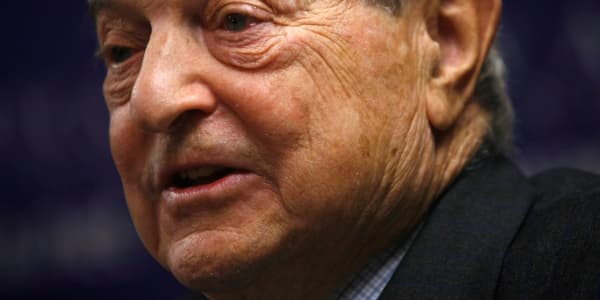
Gold may post its fourth week of gains as concern of prolonged political unrest in Ukraine raises fears of a sovereign default, fueling demand for safe-haven assets including bullion.
A breakthrough peace deal for the former Soviet state halted days of violence that had turned the center of the capital into a war zone and killed 82 people. It brought sweeping political change that met many demands of the pro-European opposition, Reuters reported.
Still, many believe the country's political and economic future is far from clear. "Political uncertainty has arguably increased—including the outcome of the presidential election set for May 25—bringing with it a potential increase in the probability of a sovereign default," wrote Alastair Newton, Nomura International's senior political analyst in commentary released on Sunday.
In a research report published on Saturday, Jens Nordvig, Nomura's global head of G10 FX strategy, assigned a 29 percent probability of a default in Ukraine within one year. The country's hryvnia has plunged almost 8 percent against the dollar this year.
(Read more: Gold logs third straight weekly gain)
Markets must now focus on possible contagion risk to European markets exposed to Ukraine, said David Kotok, chief investment officer at U.S. money managers Cumberland Advisors, with $2.3 billion in assets under management. "Investment implications for Central and Eastern Europe are at stake" as events continue to unfold, Kotok said. "The entire complex structural relationship between old Europe and Russia is again in play."
The fast-evolving landscape in Ukraine echoes political strains elsewhere in the emerging world, namely Venezuela and Argentina—tail-risks that may help boost the case for gold.
"With the growing international concern over the situation in Ukraine, there could be some additional movement into gold in anticipation of continued flare-ups and unrest," said Scott Carter, chief executive officer of Los Angeles-based Lear Capital.
Adding to gold's appeal are fears that U.S. data releases this week may miss expectations as the recent extreme winter weather stalls economic activity. "Economic fundamentals are weaker in the U.S. than many realize," said Miguel Perez-Santalla, vice president at online precious metals market BullionVault.
Asian demand 'sponge'
Further evidence of a deepening contraction in China's economy may provide another boost.
A key indicator of Chinese manufacturing, which dropped to a seven-month low last week, "along with unexpected weakness in the U.S. housing market, and the unstable situation in Ukraine have put the luster back on gold's safe-haven status for many investors," said Edmund Moy, chief strategist at Morgan Gold and a former director of the U.S. Mint.
(Read more: )
Almost two-thirds of 16 people polled in a CNBC survey, 63 percent, said gold will gain this week. A quarter maintained gold will correct lower, while 12 percent said prices will be unchanged. The survey results correspond with data from IG Markets, which shows 71 percent of its more than 501 clients with open positions expect gold prices to rise.

In a further bullish signal, hedge funds plowed into gold and crude oil as prices rallied last week. Friday data showed the bullish money wagered by commodity speculators was driven to the highest level since 2011, Reuters reported.
Gold accounted for $2.9 billion, or 21 percent, of the weekly increase of $13.5 billion in managed money net longs. Open interest in U.S. gold, a measure of market liquidity, rose nearly 7 percent.
Still, market professionals holding bearish views maintain that gold's safe-haven bid and renewed Asian physical buying will offer limited impetus to prices, and won't be strong enough to offset investor outflows from gold-backed exchange-traded funds (ETFs).
The world's largest gold-backed ETF, SPDR Gold Shares, last week notched its first weekly outflow in almost a month, of 5.6 tons.
"We believe outflows in physically backed ETFs are likely to resume," said UBS analysts Dominic Schnider and Giovanni Staunovo. "The focus remains on Asian demand as a sponge to absorb additional ETF selling in 2014. Although we believe Asia has the affinity and the ability to increase purchases, another round of lower prices is likely necessary to balance the market—prices reaching $1,050-$1,150/oz."
(Read more: Dollar may suffer from weather-hit data)
Mark O'Byrne, founder and executive director of Dublin-based bullion dealer GoldCore, said gold is "vulnerable" after recent gains. Last Tuesday, the metal hit $1,332.10—its highest since October—lifted by follow-up demand after gold posted a more than 4 percent gain last week, Reuters reported on Friday.
Nevertheless, according to O'Byrne, "Worries about global economic growth are underpinning gold's safe-haven appeal and the technicals suggest that after a pullback, the precious metal may continue to rise in dollar and other fiat currencies."
—By CNBC's Sri Jegarajah





